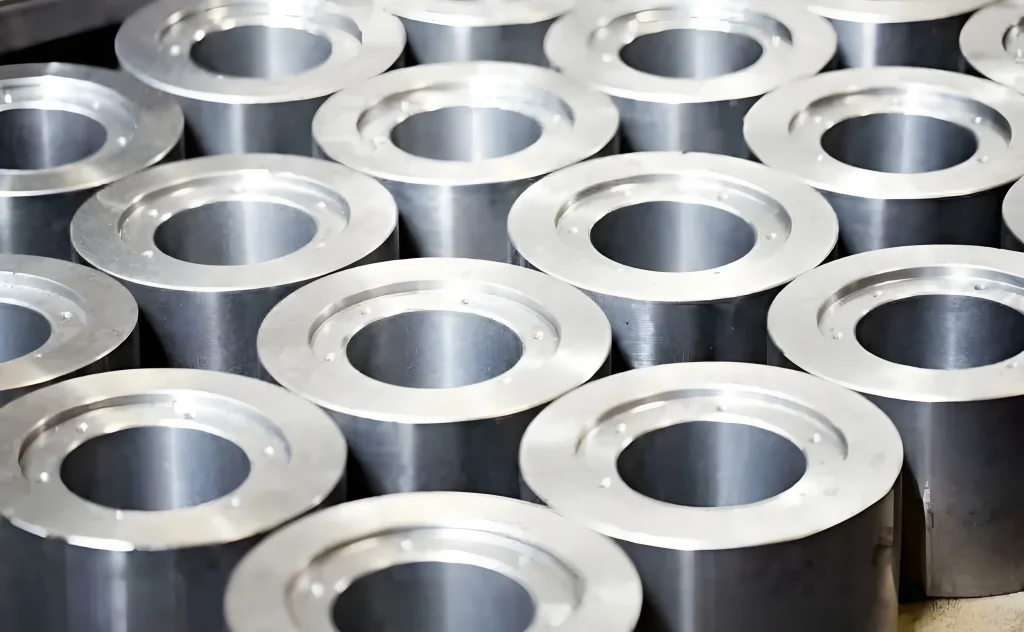Casting Alloys Manufacturing Solutions for Industrial Excellence | Welleshaft
1.Why Casting Alloys Manufacturing Matters
In today’s competitive industries, Casting Alloys Manufacturing Solutions play a vital role in producing durable and precise components. Yet, many businesses still face critical issues such as low production efficiency, unstable quality, and high defect rates.
- Low production efficiencyleading to missed deadlines
- Unstable qualitycausing frequent rework
- High defect ratesincreasing costs
At Welleshaft, we specialize in industrial casting alloys manufacturing solutions that address these pain points by improving efficiency, ensuring stable quality, and scaling production capacity.
2.Alloy Casting Manufacturing Process Explained
The alloy casting manufacturing process includes melting, alloying, molding, and controlled solidification. Traditional foundries often struggle with inconsistencies, but Welleshaft applies engineered alloy casting manufacturing with advanced monitoring. This ensures uniform grain structures, reduced porosity, and optimized cycle times.
3.Metal Casting Alloys Production for Higher Efficiency
Inefficient workflows and outdated machinery often slow down metal casting alloys production. At Welleshaft, we use CNC-assisted molding, automated pouring systems, and precision temperature control to increase output. Clients report 20–30% faster cycle times after switching to our precision casting alloys manufacturing methods.
4.Industrial Casting Alloys Manufacturing for Quality Assurance
High defect rates can severely impact profitability. Welleshaft integrates real-time defect detection et non-destructive testing (NDT) in our industrial casting alloys manufacturing.
Table: Quality Benchmark – Traditional vs Welleshaft
| Parameter | Traditional Foundry | Welleshaft Casting Alloys |
| Average Defect Rate (%) | 8–12% | 2–4% |
| Rework/Repair Costs | Haut | Faible |
| Delivery Consistency | Unstable | 98% On-Time |
| Dimensional Accuracy (mm) | ±0.15 | ±0.05 |
6.Precision Casting Alloys Manufacturing vs Traditional Methods
Unlike traditional methods with high variability, precision casting alloys manufacturing uses investment casting, vacuum casting, and 3D mold simulation. This ensures repeatability, dimensional accuracy, and defect reduction.
7.High-Strength Alloy Casting Manufacturing for Industrial Durability
In construction, energy, and heavy machinery, components must withstand extreme stress. Our high-strength alloy casting manufacturing ensures higher tensile strength, heat resistance, and fatigue resistance compared to conventional alloys.
Example: A construction OEM reduced component failure by 40% after adopting Welleshaft’s heat-resistant alloy casting production.
8.Non-Ferrous Alloy Casting Manufacturing in Automotive Applications
Automotive manufacturers increasingly adopt non-ferrous alloy casting manufacturing to achieve lightweight yet strong parts. Welleshaft provides custom automotive alloy casting manufacturing services with compliance to IATF 16949 standards.
Benefits include:
- Weight reduction up to 25%for fuel efficiency
- Improved corrosion resistancefor longer vehicle life
- Lower maintenance coststhrough better durability
9.Sustainable and Advanced Alloy Casting Production
Sustainability is now a key demand. Welleshaft offers sustainable alloy casting manufacturing practicesy compris :
- Recyclable non-ferrous alloy casting production
- Energy-efficient furnaces reducing power consumption by 15%
- Advanced casting simulation minimizing scrap
10.Case Study – Automotive Supplier Success
A Tier-1 automotive supplier faced 15% defect rates in aluminum castings. After implementing Welleshaft’s die casting alloys manufacturing process, defects reduced to 3%, saving over $1.2M annually.
11.FAQs on Casting Alloys Manufacturing
(1) What is the casting alloys manufacturing process?
It’s the controlled process of manufacturing metal casting alloys through melting, molding, and cooling.
(2)How much does precision alloy casting manufacturing cost?
Pricing depends on volume, material type, and complexity. Welleshaft offers transparent cost-per-kg quotations.
(3)Is small-batch alloy casting manufacturing suitable for prototypes?
Yes, it is ideal for testing new designs before scaling.
(4) Can sustainable alloy casting reduce costs?
Yes, sustainable practices lower raw material waste and energy use.
This article was written by the Welleshaft Engineering Team, specialists in precision casting alloys manufacturing with over 10 years of global experience. Our certified engineers help OEMs reduce defects, improve efficiency, and scale production with reliable industrial casting alloys solutions.

